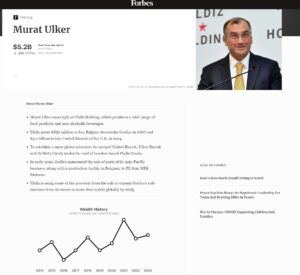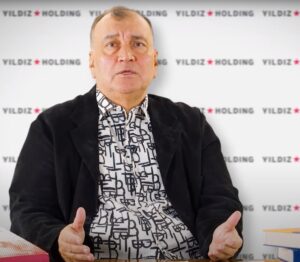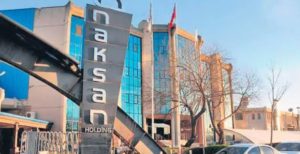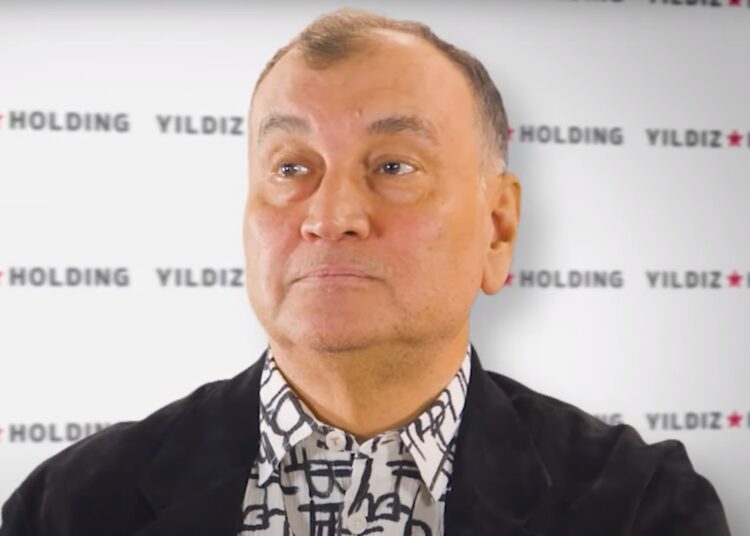Abdullah Bozkurt/Stockholm
Turkey’s top billionaire businessman, Murat Ülker, has been the subject of multiple terrorism investigations by Turkish authorities spanning the years 2017 to 2023, all of which culminated in rulings for non-prosecution, as revealed in documents obtained by Nordic Monitor.
Criminal complaints lodged against Ülker, followed by investigations conducted by prosecutors in the Istanbul Chief Public Prosecutor’s Office, have been integral to the extensive crackdown on the Gülen movement — a group known for its criticism of the government of Turkish President Recep Tayyip Erdogan.
Turkey’s wealthiest individual, according to Forbes’ ranking last year, has miraculously navigated numerous challenges posed by the Erdogan government over the years, enabling the continuity of his business operations in the country.
Since 2015 the Erdogan government has orchestrated unlawful takeovers and seizures of companies and institutions, alleging connections to the movement or affiliations with its followers. This blatant abuse of the criminal justice system, aimed at confiscating companies, assets and funds, is perceived as a means of redistributing wealth from business figures critical of President Erdogan to his loyalists and cronies.
According to the Brussels-based Institute for Diplomacy and Economy (instituDE), the extensive property confiscations in Turkey aimed at the Gülen movement have reached an estimated value of $50 billion, impacting over 1.5 million individuals. instituDE has labeled the Turkish government’s actions as systematic and widespread violations of both domestic and international law, constituting “crimes against humanity.”
It seems that Ülker, chairman of the board of directors of the London-based Pladis Foods and a board member of Istanbul-based Yıldız Holding, has become ensnared in this ongoing crackdown. According to a document signed on April 10, 2023 by public prosecutor Enes Kocakale from the Bureau of Investigations into Terrorism and Organized Crime, the billionaire was the subject of a new investigation in 2023 under case file number 2023/2704.
The investigation was initiated following the mention of his name during a trial at the Istanbul 33rd High Criminal Court, where a defendant identified him as part of the Gülen movement. Upon examination of the complaint, Kocakale opted for non-prosecution.
A document signed by public prosecutor Enes Kocakale from the Bureau of Investigations into Terrorism and Organized Crime listed past investigations into billionaire Murat Ülker:
The document also revealed that Ülker was the subject of five terrorism investigations between 2017 and 2019, under case file numbers 2017/172440, 2018/69396, 2018/100164, 2018/180169 and 2019/12476, all of which were ultimately dropped.
Ülker himself denied any connection to the movement, stating that only 10 out of his approximately 50,000 employees working for Yıldız Holding and other companies he and his family manage were arrested on Gülen-related charges. The majority of the workforce, estimated at 35,000, is situated in Turkey.
In 2016 pro-government newspapers targeted Yıldız Holding due to its ties to Kaynak — a major conglomerate that owned around 50 companies, including the largest publisher in Turkey, and was affiliated with the Gülen movement.
Kaynak was unlawfully seized by the Erdogan government in 2015. According to Ali Ülker, a brother of Murat Ülker and the current CEO of Yıldız Holding, the two companies had a joint project involving property cooperation dating back to 2010. Despite the public campaign at the time, Yıldız Holding managed to withstand the pressure.

However, in 2017 Murat Ülker and his company Yıldız Holding were the subjects of an investigation over a TV commercial that was falsely interpreted as containing subliminal pro-coup messages by supporters of Erdogan. The commercial triggered a wave of protests, with numerous supporters of Erdogan sharing videos depicting the destruction, torching and hanging of Ülker products.
Based on the notion of April Fool’s Day with a message of “It’s settlement time,” the ad contained cartoon images of jokes that children play on each other on April 1.
Ülker described the situation as a “plot,” denouncing it as manipulation. He added, however, that an internal company investigation had been launched into those responsible for the advertisement and that all employees whose negligence had played a role in its airing had been suspended.

Since 2015 the Erdogan government has seized around 1,000 private companies, including major newspapers such Zaman and Bugün and business conglomerates like Boydak Holding, the Koza Ipek Group, Kaynak Holding, Naksan Holding, Suvari Co, Dumankaya, Akfa, Orkide and Sesli, as part of its crackdown on the Gülen movement.
The assets of these seized companies were reportedly appropriated and distributed to government loyalists through controversial practices adopted by the state-run Savings Deposit Insurance Fund (TMSF).
Nordic Monitor revealed in June 2022 how Naksan Holding, valued at $3.6 billion and comprising 51 companies, was forcibly taken over from its owners in July 2016. This occurred a year after Erdogan threatened the owners of Naksan in a private meeting at his residence in Istanbul, during which he purportedly demanded $250 million in bribes to allow the holding to continue operations.

The owners of Naksan, members of the Nakıboğlu family, respected in their community and with a six-decade history of owning and operating various businesses in Gaziantep province, refused to pay the alleged bribe. Subsequently, a furious Erdogan is said to have unleashed the government’s wrath on the owners for their refusal to comply with the demand for money.
Similarly, Hamdi Akın İpek, the owner of the Koza Ipek Group, which possessed multiple companies, including the nation’s third-largest national media outlet, found himself targeted for his refusal to yield to pressure and blackmail from the Erdogan government. The group, which owned two national networks (Kanaltürk and Bugün TV), the Millet daily, a radio station and the English-language news website BGNNews.com, had published breaking stories that were perceived as troublesome by the government.
On September 1, 2015 the Bugün daily published still shots from CCTV footage showing a significant amount of materials, including explosives, construction pipes, large metal plates and fertilizer ingredients, being transferred to the Islamic State in Iraq and the Levant (ISIS) from Turkey’s Akçakale border gate in southeastern Şanlıurfa province. Turkish customs officials were reported to have stood by and watched. On the same day, the government authorized raids on the holding, citing fabricated accusations of financial irregularities, in order to put pressure on the newspaper.

Despite the government pressure, Bugün vowed to persist in its independent and critical editorial line. On October 22, 2015 prosecutors and judges appointed by the Erdogan government issued a new warrant to seize all 22 companies owned by the İpek family, including the media outlets. On October 27 police officers forcibly entered Koza İpek Holding headquarters in Ankara, using tear gas on protesters who had gathered to support the coonglomerate. A similar show of force was observed in the takeover of media outlets in Istanbul.
Zaman was another newspaper that came under government pressure when it started publishing documents from the 2013 corruption probes that incriminated then-prime minister and current president Erdogan, his family members and his inner circle. Erdogan launched a campaign against the newspaper, asking his supporters to drop their subscriptions and exerting pressure on the daily’s advertisers. That actually helped the daily to increase its sales to 1.2 million copies a day, although its revenue from ads decreased under government pressure.
The government orchestrated a bogus criminal case against the newspaper in 2014, and the paper’s editor-in-chief, Ekrem Dumanlı, was detained in December 2014 and later released pending trial. The government seized the paper in March 2016 on a complaint filed by an al-Qaeda-affiliated, pro-Erdogan group that claimed the paper had defamed the jihadist group in articles and op-ed pieces.
After the government takeover, the paper was turned into a government mouthpiece overnight, with chief editors immediately dismissed and government loyalists brought in to run the publication. Circulation dropped to 4,000 in a week after a major reader backlash, and the government shut it down in July 2016, wiping out decades of work in the newspaper’s archives and taking down its website.












